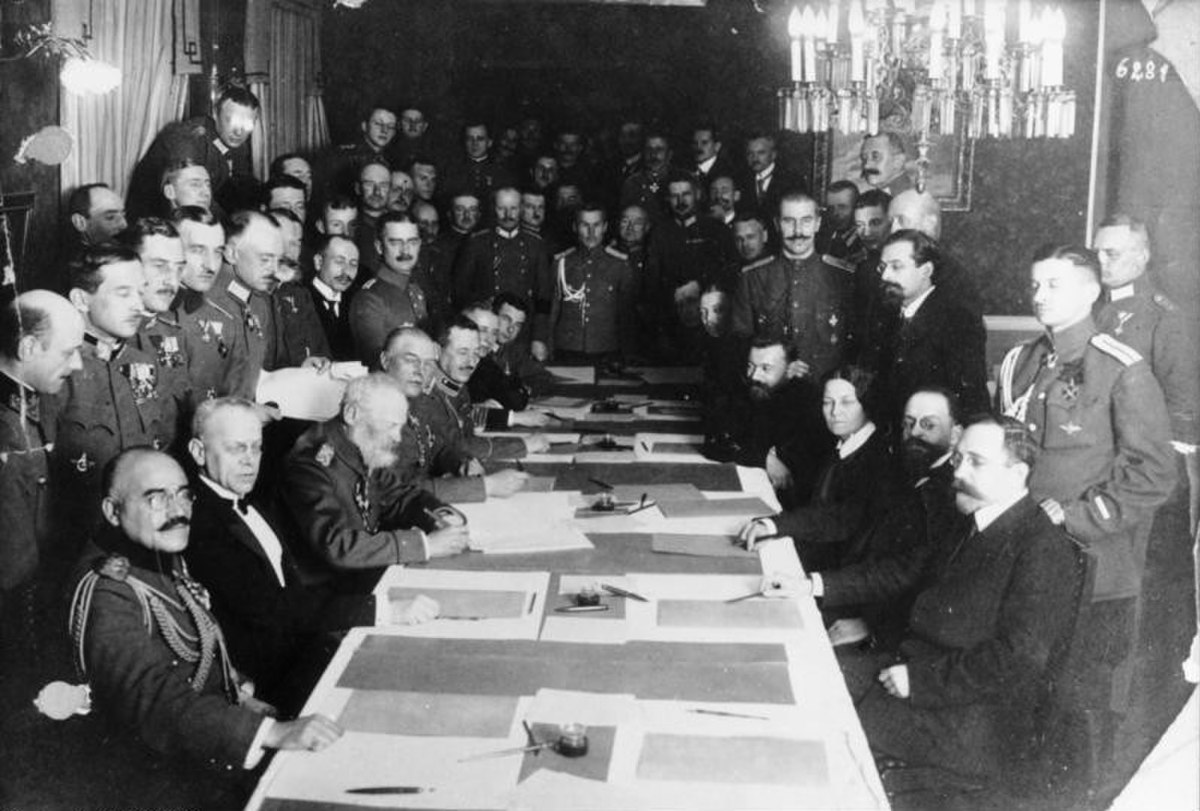
Peace with the Central Powers
Central EuropeThe Bolsheviks decided to immediately make peace with the Central Powers, as they had promised the Russian people before the Revolution. Vladimir Lenin's political enemies attributed that decision to his sponsorship by the Foreign Office of Wilhelm II, German Emperor, offered to Lenin in hope that, with a revolution, Russia would withdraw from World War I. That suspicion was bolstered by the German Foreign Ministry's sponsorship of Lenin's return to Petrograd. However, after the military fiasco of the summer offensive (June 1917) by the Russian Provisional Government had devastated the structure of the Russian Army, it became crucial that Lenin realize the promised peace. Even before the failed summer offensive the Russian population was very skeptical about the continuation of the war. Western socialists had promptly arrived from France and from the UK to convince the Russians to continue the fight, but could not change the new pacifist mood of Russia.
On 16 December 1917 an armistice was signed between Russia and the Central Powers in Brest-Litovsk and peace talks began. As a condition for peace, the proposed treaty by the Central Powers conceded huge portions of the former Russian Empire to the German Empire and the Ottoman Empire, greatly upsetting nationalists and conservatives. Leon Trotsky, representing the Bolsheviks, refused at first to sign the treaty while continuing to observe a unilateral cease-fire, following the policy of "No war, no peace".
Therefore, on 18 February 1918, the Germans began Operation Faustschlag on the Eastern Front, encountering virtually no resistance in a campaign that lasted 11 days. Signing a formal peace treaty was the only option in the eyes of the Bolsheviks because the Russian Army was demobilized, and the newly formed Red Guard could not stop the advance. They also understood that the impending counterrevolutionary resistance was more dangerous than the concessions of the treaty, which Lenin viewed as temporary in the light of aspirations for a world revolution. The Soviets acceded to a peace treaty, and the formal agreement, the Treaty of Brest-Litovsk, was ratified on 3 March. The Soviets viewed the treaty as merely a necessary and expedient means to end the war.
